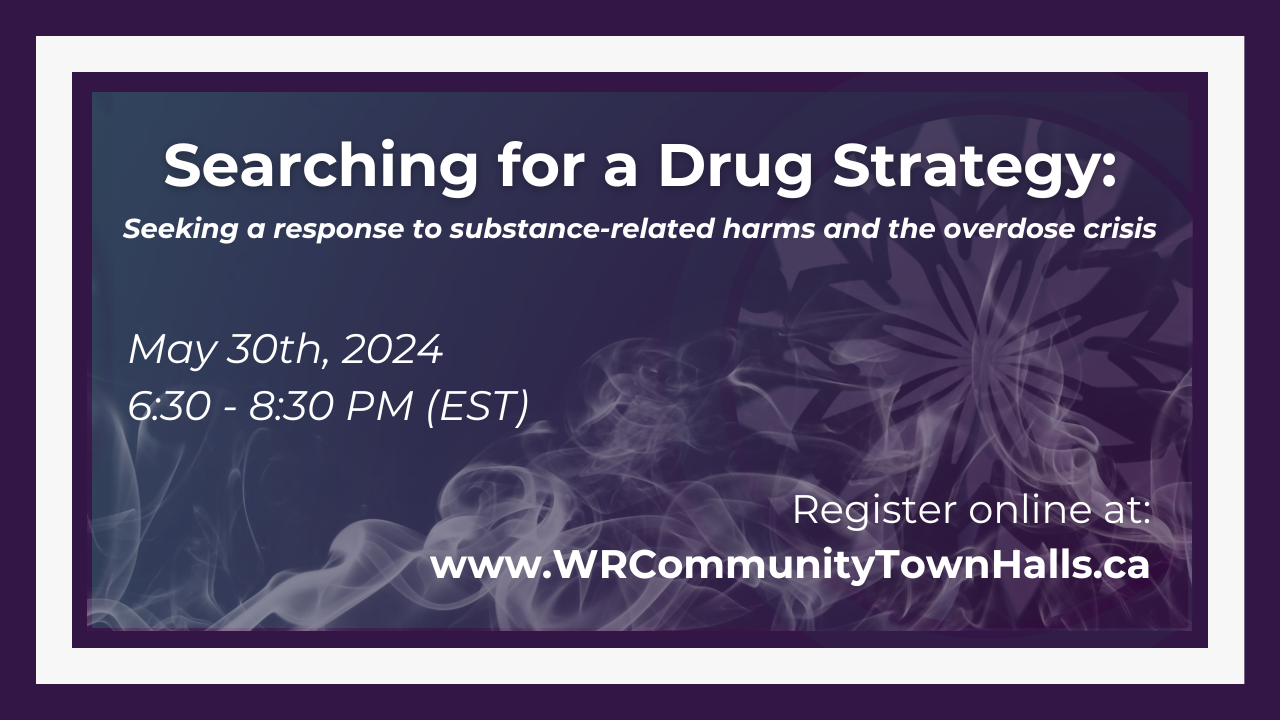Bill Bogart
Author, Retired University Professor, and Professor of Law
|
W.A. (Bill) Bogart, B.A., LL.B. (University of Toronto), LL.M. (Harvard) is a retired Distinguished University Professor and Professor of Law (University of Windsor). He is the author/editor of eight books and many articles dealing with the role of courts, access to justice, the impact of litigation and empirical research on legal policy. He has lectured and delivered papers throughout North America and Europe.
Most recently his work has focussed on the shift from criminalization to regulation of nonmedical use of drugs. His latest book is Off the Street: Legalizing Drugs. |
Presentation
|
|
|
On May 30, 2024, a town hall meeting was held to address the escalating opioid crisis and discuss comprehensive strategies involving prevention, treatment, harm reduction, and enforcement. The event featured several distinguished speakers who provided insights based on their expertise and experiences in various aspects of drug policy and public health.
Bill Bogart provided a detailed overview of decriminalization in Canada, highlighting its distinctions from legalization and its potential impact on drug policy. He discussed examples from other regions, including Portugal and Oregon, and emphasized the importance of explicit decriminalization to encourage individuals to seek help without fear of prosecution. This town hall underscored the complexity of the opioid crisis and the necessity of a multifaceted approach involving prevention, harm reduction, treatment, and enforcement. The speakers collectively advocated for evidence-based strategies, comprehensive care, and collaborative efforts to effectively address the crisis and support affected individuals and communities. |
Guest Speakers: |
Decriminalization in Canada
- Definition and Goals: Decriminalization means not charging individuals criminally for possessing small amounts of drugs, differing from legalization, which also addresses supply.
- Examples and Outcomes: Portugal's initial success with decriminalization highlights the importance of supporting public health initiatives. Oregon’s experience shows the need for public and political support.
- Current Efforts in Canada: British Columbia’s pilot project and Toronto’s de facto practices indicate growing interest in decriminalization, though political challenges remain.
Bill Bogart provides a detailed overview of the current state of decriminalization in Canada, emphasizing its distinction from legalization. Decriminalization implies that individuals will not face criminal charges for possessing and using small amounts of drugs, while legalization addresses both the demand and supply aspects, allowing legal access to these substances. The goals of decriminalization include reducing criminal charges for drug use, alleviating the burden of criminal records, addressing discriminatory practices, freeing up police and court resources, and encouraging individuals to seek help without fear of prosecution. However, Bogart notes that decriminalization alone cannot address broader issues related to drug use, such as poverty, homelessness, and mental health problems.
Bogart discusses examples from other regions, starting with Portugal, which decriminalized drugs 25 years ago. Initially, this move saw positive outcomes, including reduced deaths and HIV infections, without an increase in drug use or drug tourism. However, recent reductions in public health supports have lessened these successes, though drug use rates remain below the European average. In the United States, Oregon's voter-approved decriminalization faced significant pushback due to public use and anti-social behavior, leading to its repeal.
In Canada, British Columbia has initiated a three-year pilot project for decriminalization, starting in January 2023, with federal oversight. This project faces challenges related to public use and associated behaviors, with concerns that restricting public use might increase isolated drug use, leading to more overdoses. Toronto has shown interest in decriminalization, supported by the city's chief medical officer of health and police chief, but faces opposition from the provincial government.
Bogart emphasizes the importance of explicit decriminalization over de facto practices to ensure broader benefits, such as encouraging individuals to seek help publicly. Clear policies regarding public use are crucial to avoid misunderstandings and ensure safety. He concludes by noting the need for careful consideration of public use policies and the benefits of a clear, public decriminalization stance to encourage help-seeking behavior without fear of legal repercussions.



